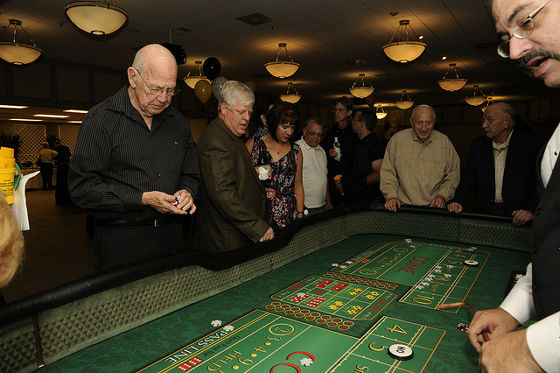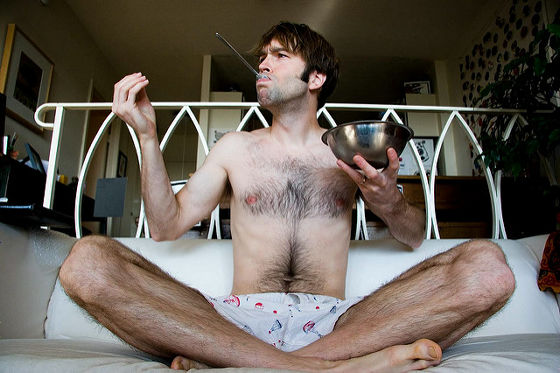Three ways to overcome the lack of self-control 'Akrasia' that you do even if you know it is useless

By
Many people have encountered cases where they need to control themselves in order to meet their long-term goals, such as 'I have to work this weekend to finish my work by the deadline.' There are many people who have lost their desires, such as 'Well, let's go home early to change our mood today.' Writer, entrepreneur, and photographer James Clear summarizes three ways to get rid of the bad habits that can produce bad results when you're about to lose. I am.
The Akrasia Effect: Why We Don't Follow Through on Things
https://jamesclear.com/akrasia
Despite the long-term goal and reward of 'achieving something', it is easy to get it in front of you, but you lose the temptation of pleasure and reward that goes against the final goal. Nothing is limited to modern people. Reason and desire can be said to be the ultimate theme of mankind, as the ancient Greek philosopher Aristotle preaches 'Akrasia theory' using the Greek word 'Akrasia ' for such 'lack of self-control'. Victor Hugo , a 19th-century French poet and novelist, is one of the people who faced such a problem with Akrasia.
In 1829, Hugo signed a contract with a publisher to write a novel for 12 months. This work, after the Disney animated film ' The Hunchback of Notre Dame is also an original of', ' Notre Dame de Paris in', even though were given a period of 12 months, Hugo effort to other things Writing was slow because I was spending time for my friends. In the summer of 1830, the original deadline, the numb publisher set a new deadline of 'until February 1831' and urged Hugo to adhere to it.

With an inescapable deadline, Hugo decides to take some secret steps to drive himself and continue writing. It was 'collecting clothes from all over the house and storing them in a locked warehouse.' Hugo had only a thin shawl left in his hand, which made it difficult for him to dress up and go out, but that was the aim of Hugo.
In other words, Hugo created a situation in which he couldn't do it even if he wanted to go out, so that even if his desire exceeded his self-control, he could suppress it. This operation was successful, and Hugo was devoted to writing thereafter, with the publication of 'Notre-Dame de Paris' on January 14, 1831, two weeks earlier than the second deadline.
In this way, human beings often lose to the desires in front of them, even if there are tasks that must be cleared a little earlier. As a concrete methodology to overcome it, Mr. Clear cites the following three methods.
◆ 1: Directing future actions
Hugo's act of 'hiding clothes' was called ' commitment device ' in psychological terms. Commitment devices are strategies that increase the costs of obstacles and 'bad deeds' to improve one's behavior, and conversely reduce the effort required to do 'good deeds.'
When you need to go on a diet, you should pick up a small package, even if it's expensive, instead of buying a large quantity of 'value pack' just because it's a little cheaper. Also, if you have a habit of picking up your smartphone, you can forcibly uninstall apps such as SNS, YouTube, and LINE to reduce the need to look at your smartphone and cut off the bad habit. I can. In addition, those who lose the temptation of TV can 'put the TV in a closet with a door', and those who turn to gambling can 'blacklist themselves and do not enter the venue'. It is said that radical methods such as 'to make' are also effective.

By
In this way, successful adoption of commitment device mechanisms increases the chances of suppressing short-sighted desires and leading to a successful long-term plan.
◆ 2: Lower the hurdle to start something
In general, the guilt and frustration of 'being late for the deadline' should be greater than the pain of 'working.' The reason why you can't 'get to work' is that it's not that it's difficult to 'work', but that it's really difficult to 'start work'.
To be sure, if you are a student, 'starting homework' is a higher hurdle than 'doing your homework', and if you are a member of society, 'starting expense settlement' is more 'expense settlement'. You should be able to realize that it is more troublesome than the work itself and you do not want to think about it. And in each case, there are many people who have some experience that once they get started, they can move on to the next step.
In this way, it can be said that it is the 'moment when work begins' that requires the most energy and energy in things. It is important to understand that first, but if it is something that is repeated on a daily basis, by incorporating it into one 'ritual', a mechanism that allows the mind and body to start work without permission Making it is also an effective means.

By jsnsndr
◆ 3: Use 'execution intention'
The phenomenon that a person works autonomously can be roughly divided into two elements, 'goal intention' and 'implementation intention'. Goal intent means 'determine what you want to achieve', while execution intent means 'when, where, and how to take action to achieve the goal'.
In other words, it can be said that while having a certain vague goal of 'achieving XX', the actions to achieve it are broken down and embodied. In this way, by setting up 'what I want to do (goal intention)' and visualizing 'what I should do (execution intention)', I will prepare a mechanism to act autonomously to achieve the goal. Clear says that the chances of achieving the goal will increase two to three times.
Related Posts:
in Note, Posted by darkhorse_log







